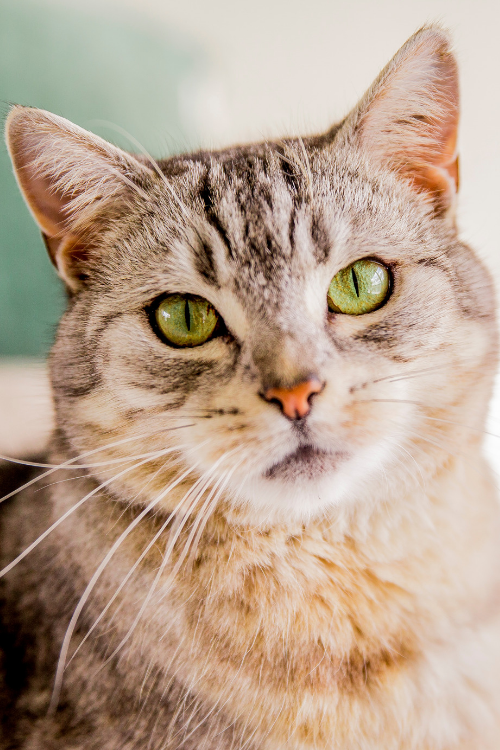Feline Immunodeficiency Virus (FIV) has been associated with cats for many years, although it was only labelled as such as recently as 1986. The virus depletes the number of white blood cells, which eventually makes the cat less able to fight off infection. However, because it is such a slow acting virus many FIV positive cats can enjoy a normal lifespan with no apparent health problems resulting from the virus.
FIV is species specific. It can only be transmitted from cat to cat, not to humans or other animals.
How does a cat catch the virus?
Cats who fight are most likely to be infected. The virus is present in the blood and saliva of infected cats. But, like HIV, it is a very ‘fragile’ virus, and cannot survive for long outside the body. It also requires a high dose to establish an infection in another cat. Therefore, it is not easily passed from cat to cat. The main route of infection is through biting, when the virus in the saliva of an infected cat is injected directly into the blood stream of the cat it bites.
The take-home message here is to prevent fighting – make sure your cat is neutered and kept indoors!
What is their life expectancy?
A cat who contracts FIV will usually still have a strong immune system for several years after infection. It is only over time, that the effects of the virus may start to show, and even then, most infections can be treated with the appropriate medications. With love and good care however, many FIV positive cats can live normal lifespans. These days, it’s not unusual to find FIV positive cats reaching 15 years or more.
Being killed in a road accident is a far higher risk for a cat than FIV.
Treatment
Treatment consists of dealing with whatever symptoms occur in the individual cat, such as common infections being treated with antibiotics. If an FIV positive cat displays any symptoms of illness, however minor, it should be taken to a vet promptly.
Adopting an FIV positive cat
A healthy FIV positive cat can live for many years and indeed can often outlive non-infected cats, but please be aware that this is not always the case. Due to their impaired immune system, the cat may succumb to illness earlier, and not reach their normal life expectancy. FIV positive cats will need prompt veterinary assistance for even minor illness symptoms. With good care however, many FIV positive cats can live normal lifespans.
Love is a powerful immune system enhancer – so cherish your FIV positive cat!
Should FIV positive cats be allowed outside?
As cats can be infected through fighting we recommend FIV positive cats be rehomed as indoor cats only. It is important to consider the feelings of neighbours with uninfected cats, and an FIV positive cat roaming is more likely to pick up disease due to their compromised immune system. For those cats yearning to be outside a secure enclosed outdoor cat enclosure is an excellent compromise.
